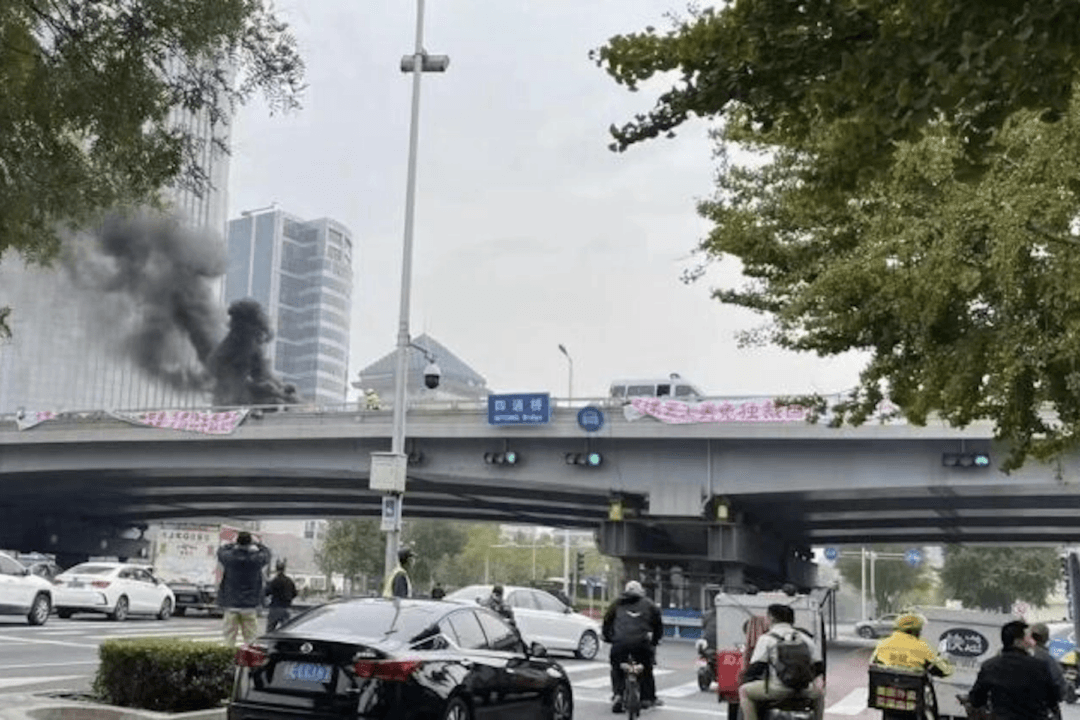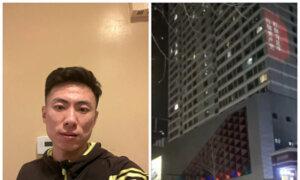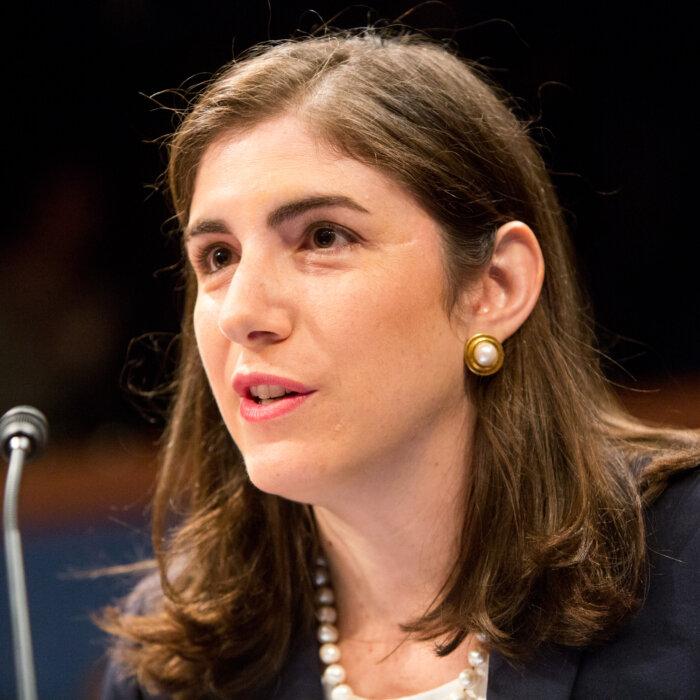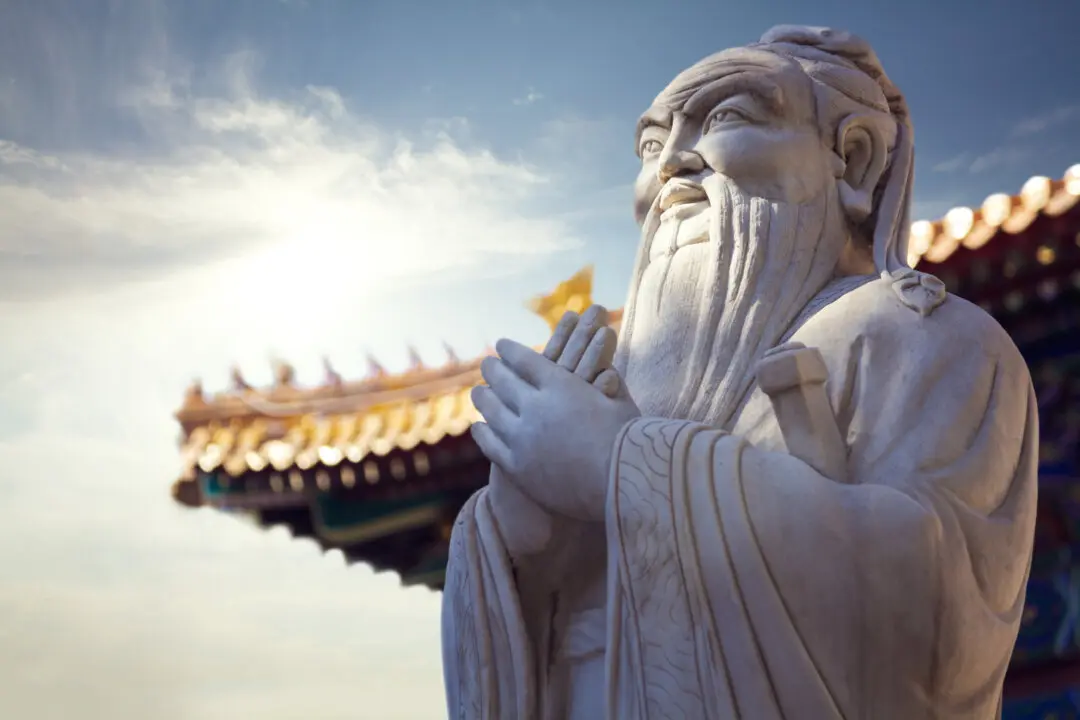Human rights organizations worldwide are calling on China’s communist regime to release Peng Lifa, known as the “Bridge Man,” who disappeared after being arrested by authorities after staging a rare protest in Beijing two years ago.
Peng hung two banners on an overpass in China’s capital city in October 2022, criticizing the ruling Chinese Communist Party (CCP) and its leader, Xi Jinping. At the time, Beijing’s “zero-COVID” policy sparked widespread discontent among Chinese citizens due to harsh lockdown measures.
Since his arrest, Peng has not been seen in public, with no formal charges brought against him—raising fears that he may be subject to ill-treatment or extrajudicial detention.
The Protest
On Oct. 13, 2022, Peng, dressed as a construction worker, unfurled two banners on Beijing’s Sitong Bridge, demanding an end to the CCP’s draconian pandemic measures and the removal of Xi.Beijing authorities quickly arrested Peng and censored all online discussions and media coverage of the incident. Social media platforms banned words and phrases associated with the protest—such as “Sitong Bridge,” “Beijing,” and “brave man”—in a sweeping effort to prevent the protest from gaining traction among the public.
Calls for Action
The anniversary of Peng’s protest has reignited calls from human rights advocates and dissidents for global intervention.Several groups, including the Visual Artists Guild in Los Angeles, have called on the Chinese regime to end its harassment of Peng’s family and release him immediately. In 2023, the organization awarded Peng the “Champion of Free Speech” award, recognizing his courage in speaking out despite the risks.
Supporters of Peng, including overseas Chinese democracy activists, have also staged demonstrations outside China, urging the international community to hold Beijing accountable for his disappearance.
On Oct. 13, in Iceland, a group of activists gathered outside the Chinese Consulate, demanding Peng’s release and emphasizing the broader struggle for freedom of expression in China.
“Two years have passed since Peng Lifa was arrested on October 13, 2022, and he remains missing to this day,” said Zhou Feng, a Chinese democracy advocate and a member of the Chinese Democratic Party branch in Iceland.
Feng accused the CCP of “depriving [Peng] of the basic human rights to which every individual is entitled.”
Zhou told The Epoch Times that members of the Chinese Democratic Party staged protests on the same day around the world to support Peng, urging Beijing to disclose Peng’s whereabouts and release him. He said Peng’s protest was not just about one man’s grievances but for “freedom and justice for everyone.”
“Today, we stand here not just to honor this courageous voice but to call on the global community to urge the Chinese regime to release Peng Lifa and end this unjust persecution,” Zhou said.
“Today, we call for a global movement to raise a powerful voice: Free Peng Lifa!”
Widespread Suppression
Chinese authorities have intensified their efforts to quench dissent in recent years, detaining activists, human rights lawyers, and citizens who dare to speak out against the CCP. Beijing authorities also began recruiting additional security personnel, known as “bridge watchers,” to patrol city bridges in the aftermath of Peng’s protest, further tightening surveillance.“The Chinese government may have taken away the ‘Bridge Man,’ but his arrest ignited widespread support for a free and democratic China,” Wang said.
“Two years since Peng Lifa was taken into police custody and forcibly disappeared, his message continues to resonate across the nation.”
Peng’s disappearance is not an isolated case.
In July this year, Fang Yirong, a 22-year-old activist, hung a banner over a bridge in Hunan Province, calling for the Chinese people to reject autocracy. Fang was immediately arrested, and his whereabouts remain unknown.







